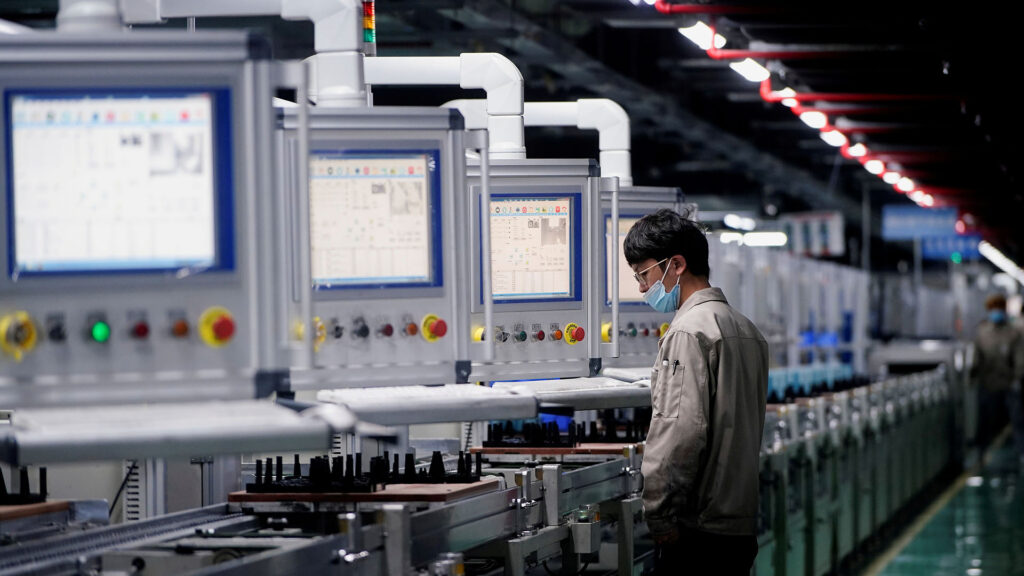|
Getting your Trinity Audio player ready...
|
China's manufacturing sector faced its fifth straight month of contraction in August, as indicated by the official survey, creating increased pressure on policymakers to take decisive measures to stabilize economic growth.
The manufacturing Purchasing Managers' Index (PMI) for the country stood at 49.7 for the month, reflecting a contraction compared to the previous month.
In contrast, the non-manufacturing PMI, which encompasses services and various sectors like agriculture and construction, reached 51, indicating expansion.
Persistent Economic Concerns
A string of disappointing economic data has raised concerns about China's economic performance. Despite high expectations for a rebound after the lifting of COVID-19 restrictions at the beginning of 2023, a robust recovery has not fully materialized.
The country's property sector, traditionally accounting for over a quarter of its economy, has notably slowed due to a two-year liquidity crisis.
Simultaneously, a slump in global consumption has weighed on China's once-thriving export sector. In July, consumer prices recorded a year-on-year decline for the first time since early 2021.
Mixed Manufacturing Data and the Need for Policy Support
Although the latest manufacturing data indicates continued contraction, it was slightly higher than the previous month's reading of 49.3 and exceeded the expectations of analysts polled by Reuters. Conversely, the non-manufacturing data fell short of expectations.
Sheana Yue, China economist at Capital Economics, suggested that the data showed "a slight improvement in economic activity in August" but cautioned that "overall economic momentum remains weak, and more policy support is needed to avoid a renewed slowdown later this year."

Government's Cautious Approach
Beijing has set its lowest economic growth target in decades, aiming for 5% growth for the full year, and has adopted cautious measures to support the economy.
Policymakers have attempted to stimulate consumption, which remains lackluster, but have refrained from implementing significant stimulus measures. In a surprising move, authorities recently kept a core five-year lending rate unchanged, citing concerns that deeper cuts could strain the banking system.
Property Sector Challenges and Potential Spillover
China's property sector continues to grapple with numerous challenges, including defaults, construction delays, and dwindling transactions. In particular, Country Garden, the country's largest private developer, recently missed bond payments and reported losses of $7 billion in the first half of the year.
Concerns over missed payments at Zhongrong, a major Chinese investment company, have raised fears that the real estate crisis could affect the country's savings products.
Broader Economic Impact and Stock Market Reaction
Goldman Sachs analysts observed that within the non-manufacturing survey, areas such as transport, accommodations, catering, sports, and entertainment recorded scores above 55, implying that activity in other service industries like property may have deteriorated further in August.
Following the release of the latest PMI data, Chinese stocks experienced a decline, with the CSI 300 index down 0.6%, and the real estate sub-index plummeting more than 4%. These developments underscore the significance of China's economic challenges and their potential repercussions.







